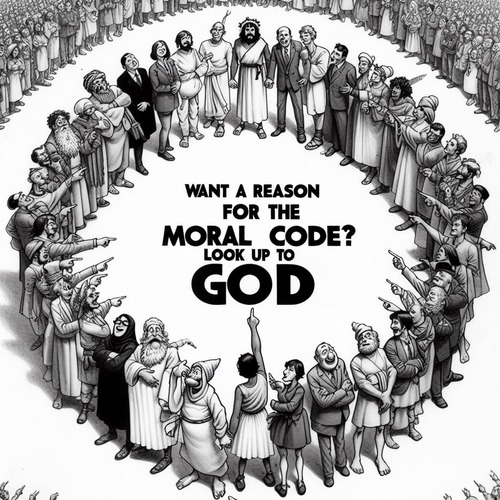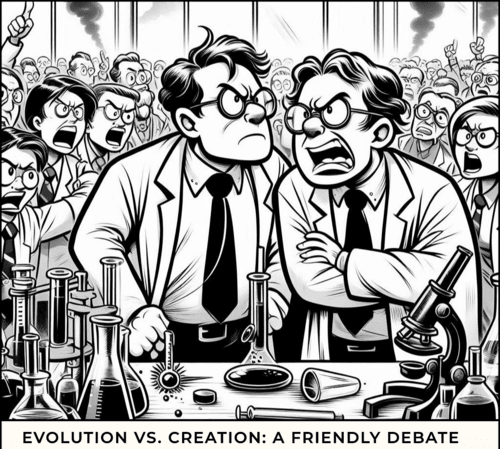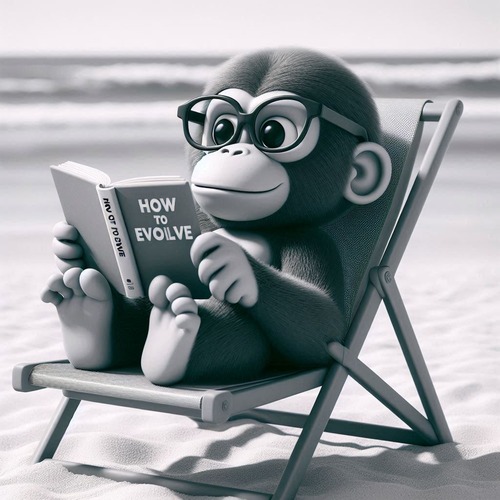The Universal Moral Code: The Argument for a Caring, Morally Just God
The moral argument for God’s existence presents a powerful case for a divine source of objective morality. While detractors have raised questions and criticisms, Christian thinkers have provided nuanced responses that deepen our understanding of morality’s divine connection. The existence of a caring, morally just God is, any day, a far better explanation for the universal moral code than the notion it arises from mere matter, time, and chance. This argument not only addresses cultural differences and moral relativism but also tackles evolutionary explanations, presenting a compelling starting point for exploring God’s existence.
Overcoming Cultural Differences and Moral Relativism
Core vs. Peripheral Morality: Critics argue moral values are not universal and vary widely across cultures. However, Christians point out that while there are differences in specific practices (peripheral morality), core moral values—such as the protection of innocent life and the importance of keeping promises—are consistent across cultures. These fundamental moral truths suggest that some ethical principles are universally recognized and serve as a global ethical foundation.
The “Spotlight Effect”: Another criticism is that different cultures focus on different aspects of moral issues, leading to apparent contradictions. Christians respond with the “spotlight effect” analogy: imagine a spotlight illuminating a single moral issue from various angles. While each culture may emphasize different facets of the issue, they are ultimately addressing the same core principle. For example, all cultures value human life, even if they express this value differently.
Divine Revelation and Moral Development: Critics often question how moral values can be universal if they have evolved over time. Christians believe God has progressively revealed objective moral standards throughout history through prophets, scriptures, and spiritual insights. This divine revelation has influenced various cultures, creating a common thread of moral understanding that unites diverse moral expressions.
Addressing Evolutionary Explanations and Moral Evolution
The “Is/Ought” Gap: Evolutionary theory suggests moral behaviours developed because they were advantageous for survival. However, this explanation faces the “is/ought” problem: it explains what is (how moral behaviours came about) but not what ought to be (why we feel a moral obligation to act in certain ways). Christians argue that even if moral behaviours evolved, our deep sense of moral duty suggests a higher grounding beyond mere survival instincts.
The Problem of Evil: Critics argue that if morality is purely a product of evolution aimed at survival, then why do humans universally condemn atrocities like genocide and torture, which don’t directly threaten survival? Christians respond that the existence of objective moral evil—actions universally recognized as wrong—implies a higher moral standard. This standard cannot be fully explained by evolutionary theory and points to a moral framework that transcends human evolution.
The Argument from Morality to Design: Finally, some argue that if morality evolved naturally, it doesn’t require a divine explanation. Christians counter that the complexity and coherence of moral reasoning suggest an intelligent design. Just as the intricate design of a bird’s wing points to a creator, our sophisticated moral compass may reflect intentional design by a higher intelligence.
A Compelling Starting Point for Exploring God’s Existence
The moral argument serves as a powerful philosophical entryway into the exploration of morality’s origins and its implications for our understanding of the divine. The consistent presence of core moral values across cultures and the inherent sense of moral obligation point to a transcendent source. While detractors continue to raise questions, the existence of a caring, morally just God remains a far more satisfying explanation for the universal moral code than the randomness of matter, time, and chance.
Engaging with the moral argument with an open mind allows us to delve deeper into the origins of morality and its implications for our understanding of the divine. It encourages us to consider that our shared moral experiences are not coincidental but indicative of a deeper, purposeful design. This perspective not only enriches our understanding of morality but also opens up new avenues for exploring the profound questions about our existence and the universe’s ultimate purpose.
















